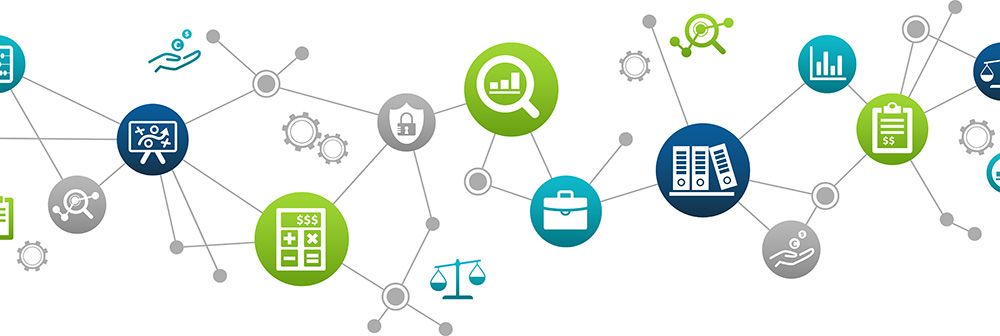An online gateway is a technology used by a business (such as an eCommerce website) to accept online transfers from customers.
Gateways, which are now the backbone of internet commerce, integrate into one seamless experience for customers a wide range of methods, including cards, digital wallets, cryptocurrency transactions and Buy Now, Pay Later (BNPL) solutions such as Klarna and Afterpay.
For credit card transactions, the issuer and acquirer play critical roles in the authentication process. The acquirer serves as the final link and is responsible for holding customer funds until they are released.
Because they deal with such private information as credit card numbers, security is essential. For example, security levels are defined by regulations such as the Services Directive 2 (PSD2), which mandates strong customer authentication (SCA). Our progress will continue as the upcoming PSD3 regulation will make open finance more secure and protect users even better.
How Does a Secure Gateway Benefit My Business?
You can now appreciate the importance of using a payment gateway because you know how they work. If you're launching a digital business, you may consider a payment gateway for website to simplify integration and secure transactions. Gateways don’t appear to be “that” vital at first glance. They’re nothing more than a go-between for the entire transaction. Nevertheless, their importance cannot be overstated.
Consider online transactions to be card not present transactions. Because the cardholder cannot swipe his or her card to allow you to log in to his or her bank account, a different type of card processing is required. There is a secure payment page that displays the credit card information of the customer.
Unfortunately, there’s no way to confirm if that person owns the funds without asking him or her directly. The likelihood of fraud occurring when a card is used in the cardholder’s absence is very high. There is a way out of this issue, thanks to the advent of gateways. In the absence of a gateway, cyber hackers can easily access your card details. Situations like this put your company at risk of chargebacks and other fraudulent activities.
Additionally, fraudsters may discover new methods of initiating transactions that aren’t legal, leaving you open to reputational damage and financial loss. gateway encrypts card data to limit risk away from sensitive information by a gateway, the gatekeeper for client data.
Gateways can also guard you against the loss of money due to insufficient funds or accounts that cannot process transactions.
Universal Payment Gateway
Examples of a Payment Gateway
In India, where mobile transactions and local methods are crucial for business success, popular payment gateways include Razorpay, PayU and the Cashfree payment gateway, which offers robust UPI integration and competitive pricing. These platforms offer businesses seamless integration with UPI, credit or debit cards and various mobile wallets.
Another reliable solution for companies looking to scale in emerging markets is Paykassma. With Paykassma, businesses can instantly accept credit card payments through local systems like UPI, PhonePe and Paytm, ensuring faster cash flow with T+0 settlements and maximizing customer conversion rates.
In addition to supporting UPI and fiat payments, Paykassma also serves as a dedicated cryptocurrency payment gateway. Businesses can accept Bitcoin, stablecoins, and other digital currencies with instant settlement, secure blockchain processing, and no rolling reserves.
How Does a Payment Gateway Work?
Customers are usually sent to a hosted payment page to complete their purchase. Although the transaction takes only a few seconds, it should be explained that several steps occur in the background. If you want to understand the full flow — from authorization to settlement — check out our guide on payment processing.
Here’s a closer look at what happens during an online transaction:
1. Pay for Your Purchase
When checking out after a purchase, a new payment system is created in the system. Customers are to complete and submit a form in which their credit card number is included. The data is encrypted and stored in line with the PCI DSS certification. After that, it is being forwarded to the merchant’s acquirer.
2. Acquiring Company to the Processing Facility
Encrypted data is sent to the payment processing network, where the bank handles it before being sent to the processing facility.
3. Acceptance or Rejection
Processing centers authorise transactions and check with credit card companies to make sure everything is in order at this point. A response is sent to the payment gateway, informing it whether or not a transaction was successful.
4. Approval of the Transaction
The payment gateway receives the final judgment from the credit card provider and sends the information to the merchant's website, alerting the customer of the transaction’s success or rejection. Once the transaction is done, the payment gateway informs the merchant in multiple ways, such as webhook, API callbacks, email, SMS, and push notifications to maintain the speed and accuracy of real-time updates and faster order processing at all times.
5. Owned Sums Are Fully Paid
The payment gateway is tasked with settling customer-merchant conflicts.

What Type of Payment Gateway Should I Choose?
Customers, especially commercial clients, utilise various payment methods like credit cards, debit cards, transfers, e-checks and others. Customers in India often rely on UPI-based apps like PhonePe, Google Pay, and Paytm, reflecting the country's strong mobile-first payment ecosystem. Customers in the US typically use PayPal, Venmo, Google Pay, Apple Pay, Cash App, and Amazon Pay as their preferred methods depending on the context of the transaction. Customers in China prefer WeChat Pay or Alipay if you’re selling in that country. Some customers prefer ACH or wire transfers.
For global payments you need to accept not just different currencies, but also include common local payment methods – for example, UPI in India, M-Pesa in Kenya, or iDEAL in the Netherlands – as a way of you meeting local customer expectations and boosting your conversion rate. That means, the gateway must accommodate the payment solutions that your clients prefer.
What Are the Most Essential Functions for You?
Analyse your business and client needs first. Customers frequently request a specific payment option. Thus, you need to prepare transaction and batch reports for the accounting staff.
You won’t be able to use every gateway if they don’t match your needs. In the US, for example, most of your consumers will pay with PayPal, whereas credit cards are preferred in Europe. Using multiple payment gateways may be necessary if you sell to diverse customers or across borders.
What Are the Costs?
When it comes to selecting payment gateways, always make sure that all charges are detected and recorded. Examine any additional fees that may apply if you exceed your credit limit or use third-party services, as they may be applicable. If your payment gateway provider is charging you for switching payment processors, it may be more expensive. If you plan to connect to a large number of payment gateways, keep an eye out for hidden fees.
Integrating a Payment Gateway
You may find yourself in need of features beyond what the gateway offers. The gateway you’re using, can it send data to your accounting or tax program? It will be necessary to manually transfer transaction data between systems if you don’t use this solution.
Pay special attention to the integration capabilities of your payment gateway, including API performance, available SDKs, ready-to-use plugins for major e-commerce platforms, and support for low- or no-coding connectivity options that make deployment easy.
How Well Does It Work with Your E-Commerce Platform?
Prebuilt integrations or payment gateways are available with some e-commerce platforms. Consider your payment processing requirements and B2B eCommerce security when looking for an eCommerce solution. They’ll likely have recommendations for an integrator or payment processor who can help you with your particular business or customer needs.
What Are Your Options for Assistance?
If there are discrepancies, it’s usually easy and fast to reach out to your payment processor. When you have a payment gateway that provides 24/7 customer care, customers are more inclined to patronise you. Around the clock, help is required by businesses that sell high-risk products or handle chargebacks or refunds regularly.
Is It Going to Grow with Your Company?
Avoid meddling with a payment gateway, only to discover later that it’s not suitable for your needs. You must have in mind that in the course of the expansion of your business, you may want to add more payment methods, integration possibilities, and other features to your gateway.
How to Find the Best Payment Gateway Solution?
Deciding on your business’s payment gateway can be stressful at first, but it is essential for you to take payments. As a result, emerging businesses have an abundance of wonderful options to choose from.
Consider your clients’ needs and the kind of transactions you want to facilitate online and offline before developing a strategy. If you’re looking to expand, a payment gateway with additional nation support and bonus features can be a good choice. If branding and control are a priority, consider exploring the white label payment gateway meaning to understand how such solutions can let you offer payments under your own name.
Online Payment Company #1
Online payment solutions for all types of businesses since 2019
Subscribe to stay updated
on industry news, insights, and exclusive offers


